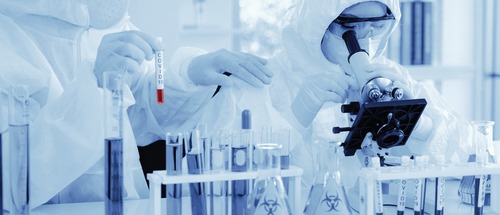
The National Institutes of Health (NIH) has earmarked funding totaling nearly $33 million over four years for five University of California San Diego Rapid Acceleration of Diagnostics (RADx) projects.
The RADx initiative seeks to expedite the development, commercialization, and implementation of technologies for COVID-19 testing. Several programs within the RADx initiative funding projects aimed at understanding why COVID-19 disproportionately impacts some communities.
“The RADx program responds to the nation’s need for innovative solutions in diagnostic technologies that are people-centric and utilize expertise in infectious diseases, informatics, data science, clinical pathology, bioengineering, and many other related areas,” said Dr. Lucila Ohno-Machado, chair of the Department of Biomedical Informatics at UC San Diego Health. “It includes, for example, artificial intelligence models that will help detect and prognosticate disease using novel sensors. Lessons learned from the current focus on COVID-19 will be leveraged in many other health sciences challenges, and data will be shared to accelerate other discoveries.”
The five projects would use advanced data management to coordinate a consortium of innovative COVID-19 diagnostic technology developers; maximize COVID-19 testing among pregnant women and children in an area of San Diego near the U.S.-Mexico border that has been noted to have the highest local incidence of COVID-19; develop, test and evaluate a rapid, scalable capacity building project to enhance COVID-19 testing in three regional community health centers in San Diego County; define the antibody repertoire against all known human coronaviruses and determine how pre-existing antibodies to other coronaviruses may shape the immune response in acute SARS-CoV-2 infection and multisystem inflammatory syndrome in children; and develop a smart mask that changes colors when exposed to enzymes of COVID-19 (Mpro and PLP proteases specific to the SARS viruses) found in saliva.




